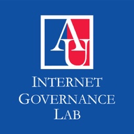By Kenneth Merrill
Following last week’s terror attacks in London, Prime Minister Theresa May stated unequivocally that “enough is enough,” adding that there is “far too much tolerance of extremism” in British society. In particular, Ms. May called out Internet companies to do more to shut down online “safe spaces,” suggesting that her government would look to broker “international agreements to regulate cyber space so that terrorists cannot plan online.”
What such international agreements might look like in practice is unclear, but according to Internet governance scholar Milton Mueller, Prime Minister May’s comments reflect a growing trend, in which nation-states are looking to assert a greater degree of control over global data flows.
“It is an attempt to fit the round peg of global communications into the square hole of territorial states,” explained Dr. Mueller on Tuesday at an event marking the release of his new book Will the Internet Fragment?: Sovereignty, Globalization, and Cyberspace. Hosted by New America’s Open Technology Institute, the event was moderated by Internet Governance Lab Co-Director Dr. Derrick Cogburn and featured Dr. Mueller in conversation with Rebecca MacKinnon, Director of the Ranking Digital Rights project at New America; Tim Mauer, Co-director of the Cyber Policy Initiative at the Carnegie Endowment for International Peace; and Angela McKay, Senior Director of Cybersecurity Policy and Strategy at Microsoft.
A video of the event is available here.
In answering the book’s title question, Dr. Mueller began the discussion by interrogating the concept of “fragmentation,” suggesting that the term “realignment” more precisely captures current efforts to assert notions of territorial sovereignty in cyberspace. In this way, Mueller’s remarks contextualized “efforts to set up gateways to filter content, using data localization to keep internet routing within state borders, and requiring governments and users to use local companies to store data” as attempts to “partition cyberspace in order to subordinate its [the Internet’s] control to sovereign states.”
“Governments are trying to have their cake and eat it too,” explained Rebecca MacKinnon, who’s 2012 book Consent of the Networked described new modes of Internet censorship and the ways in which private companies have assumed governance functions formerly reserved for nation-states. But as governments bemoan the inability to regulate content within their borders many of these same nation-states are happy to extend locally developed policies extraterritorially, explained Ms. MacKinnon, citing the Microsoft/Ireland caseand efforts to apply the EU’s “right to be forgotten” globally as examples of this sort of extraterritorial extension.
These cases, along with Prime Minister May’s recent comments, help underscore the fact that efforts to realign the Internet to fit Westphalian notions of territorial sovereignty are no longer merely the Orwellian fantasies of authoritarian states but are gaining legitimacy in more democratic national contexts. In response to these trends, Mueller proposes “a liberation movement for cyberspace, in which we recognize that we’re creating a globally interconnected polity around the Internet,” suggesting that “perhaps it is time for this polity to assert its own identity and own authority and come up with global organizations for Internet governance.”
But as Tim Mauer pointed out, the prospects for such a liberation movement seem increasingly remote given large-scale structural changes to the existing liberal order. As geopolitical developments point towards a more neo-realist order, Mauer argued that we could expect to see more “contested forms of [Internet] governance” as opposed to international agreements and transnational consensus.
Meanwhile, Angela McKay of Microsoft presented several ways in which emerging technologies like the adoption of cloud computing and the Internet of Things might present challenges and opportunities for realignment. In particular, Ms. McKay highlighted cloud adoption as an example of a fundamental change in Internet architecture and the way its governed, with a more homogeneous set of firms managing a more diffuse, heterogeneous set of end-points. Conversely, with the growth of the Internet of Things, a new set of formerly non-technical industries will be thrust into Internet governance and information technology policy discussions, bringing with them a new set of norms, best-practices, and values that will alter the dynamics of existing private-public partnerships and require new modes of Internet governance going forward.
